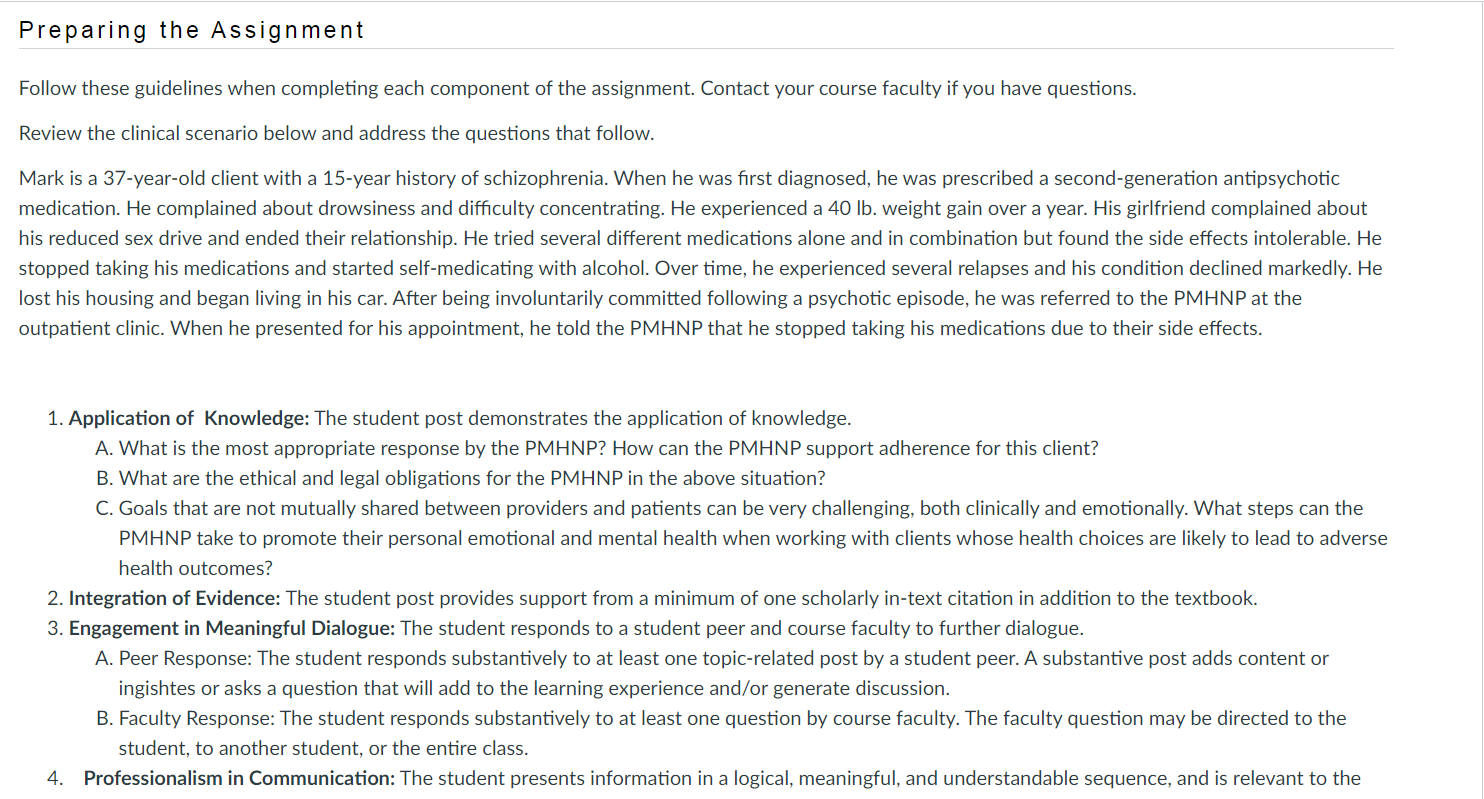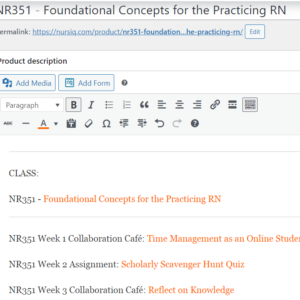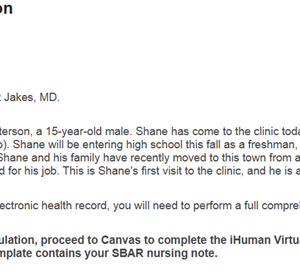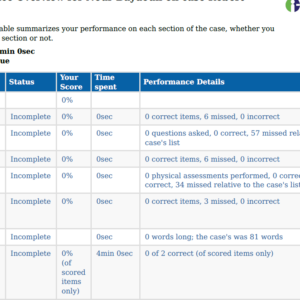CLASS:
NR547: Differential Diagnosis in Psychiatric-Mental Health across the Lifespan Practicum
Preparing the Assignment
Follow these guidelines when completing each component of the assignment. Contact your course faculty if you have questions.
Review the clinical scenario below and address the questions that follow.
Mark is a 37-year-old client with a 15-year history of schizophrenia. When he was first diagnosed, he was prescribed a second-generation antipsychotic medication. He complained about drowsiness and difficulty concentrating. He experienced a 40 lb. weight gain over a year. His girlfriend complained about his reduced sex drive and ended their relationship. He tried several different medications alone and in combination but found the side effects intolerable. He stopped taking his medications and started self-medicating with alcohol. Over time, he experienced several relapses and his condition declined markedly. He lost his housing and began living in his car. After being involuntarily committed following a psychotic episode, he was referred to the PMHNP at the outpatient clinic. When he presented for his appointment, he told the PMHNP that he stopped taking his medications due to their side effects.
- Application of Knowledge: The student post demonstrates the application of knowledge.
- What is the most appropriate response by the PMHNP? How can the PMHNP support adherence for this client?
- What are the ethical and legal obligations for the PMHNP in the above situation?
- Goals that are not mutually shared between providers and patients can be very challenging, both clinically and emotionally. What steps can the PMHNP take to promote their personal emotional and mental health when working with clients whose health choices are likely to lead to adverse health outcomes?
- Integration of Evidence: The student post provides support from a minimum of one scholarly in-text citation in addition to the textbook.
SOLUTION
The PMHNP must approach Mark with empathy, non-judgment, and a client-centered focus to rebuild trust and rapport, which are essential for fostering adherence to treatment. The PMHNP should acknowledge Mark’s previous negative experiences with medications, validate his feelings, and express a genuine willingness to collaborate on a treatment plan that aligns with his needs and goals.
Appropriate Response:
“Mark, I can see that you’ve had some really difficult experiences with medications in the past, and those side effects must have been incredibly challenging for you. It’s understandable why you’d be hesitant to try medication again after going through all that. My goal is to work with you to find a treatment that minimizes side effects while helping you feel more stable and in control. There are newer medications available, including some long-acting injectables that require less frequent dosing and may have fewer side effects. Would you be open to exploring some of these options together?”
Supporting Adherence:
- Shared Decision-Making:
- Involve Mark in discussions about his treatment options.
- Present medication choices with clear explanations of potential side effects and benefits.
- Allow Mark to express his preferences and concerns without fear of judgment.
- Psychoeducation:
- Educate Mark about…………………………….purchase at $5





Reviews
There are no reviews yet.